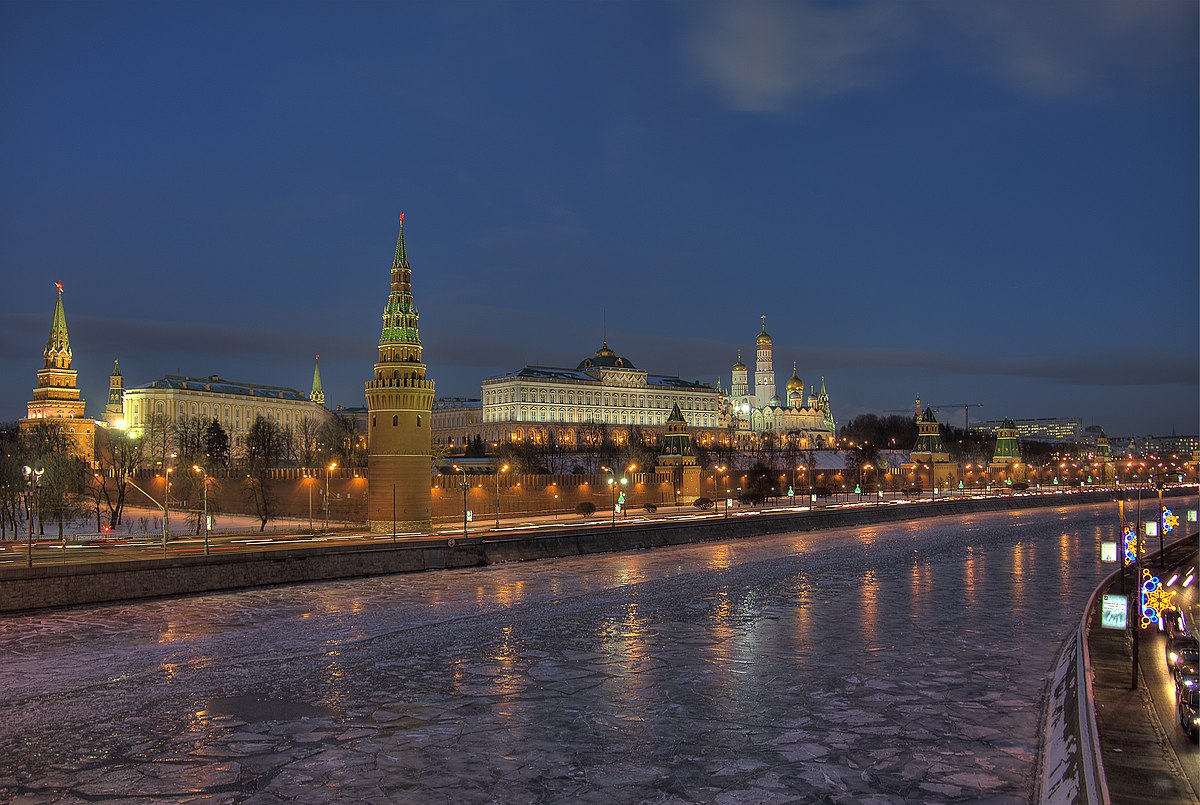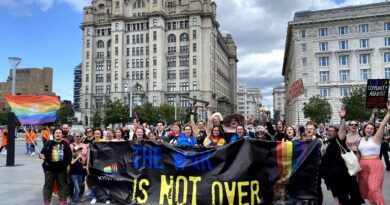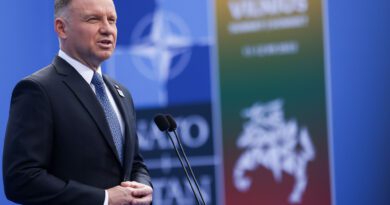The Kremlin’s people are pragmatic to the bone (interview)

Professor Hieronim Grala, a historian specializing in Russian history, former First Counselor of the Polish Embassy in the Russian Federation, and former director of the Polish Institutes in St. Petersburg and Moscow, was interviewed by Maciej Pieczyński.
In your book Wataha Putina (“Putin’s Pack”), which you co-wrote with Witold Jurasz, you note that initially, the man who was to become Russia’s president did not command respect. He looked like an “emaciated second-class Soviet official,” like an “excess crow chick, thrown out of the nest.” How did this crow chick grow into a two-headed eagle?
I understand that the comparison, in addition to the reference to the emblem, also stems from the belief that Vladimir Vladimirovich’s policy is somewhat schizophrenic, as this eagle would like to fly both to the East and to the West.
On a more serious note, Putin’s career perfectly illustrates the thesis that coincidence plays a significant role in history. Contrary to legend, he was not a professional spy of any kind, as when he worked in East Germany he was spying on his own people.
This mid-ranking KGB officer, discharged to civilian life and making a living as a cab driver, suddenly began to climb the ranks. How did this happen?
First, thanks to his connections to former intelligence officers. He was not a high-ranking officer, but he had connections. Second, Putin was a graduate of Leningrad University’s elite law faculty, which produced many members of the post-Soviet elite. Among others, Anatoly Sobchak, one of the leaders of perestroika and later mayor of St. Petersburg, lectured there.
Putin’s political career began in earnest when he became Mayor Sobchak’s deputy. This Chekist was starting his way to the top alongside a man who was a symbol of perestroika, a symbol of resistance against the return of the old system. Later, Sobchak’s former associates would meet in the Kremlin, forming Vladimir Vladimirovich’s Leningrad Guard.
Putin loyally dragged his colleagues along with him. He also showed dexterity in the palace rivalries. He was able to buy his way into Yeltsin’s good graces, and convince him that he was a trustworthy, odorless, smokeless, and irreplaceable man.
He thus climbed to the top on the backs of democrats and liberals. He took over the power ministries and then the government. He quickly cracked down on the oligarchs, who were all-powerful in the 1990s…
The oligarchs became involved in a conflict among themselves during Yeltsin’s last years in power. Each of them wanted the whole cake, not just a piece. Moreover, the pacification of the oligarchs was made easier for Putin by the fact that they were already heavily dependent on the power ministries. Many of them were former KGB casino croupiers. They operated with the security services’ money. The problem began when they claimed that money for themselves and began to reveal great political ambitions.
Has Putin become a dictator due to the war in Ukraine?
Even after two terms, Putin remained more of a primus inter pares than an autocrat.
He has clearly begun to become a dictator since his victory in the last presidential election. First, he understood that the peak of his popularity was behind him. That’s why he had to falsify the election results so grossly this time. Second, several ambitious politicians have emerged around him, who, like Yeltsin’s entourage once did, are wondering when the “tsar” will leave and which of them will replace him.
Putin, like a typical Russian ruler, is afraid to leave the throne, and war is a great way to avoid giving up power. To unleash this war, Putin had to break the resistance of those around him. Some among the Kremlin elite (Patrushev, Shoigu) also thought that invading Ukraine was a good idea. Putin gained the support of the war party and, with its help, by defeating the quasi-liberals who were skeptical about the war, he vassalized them completely.
The elites realize that the invasion was a mistake, that it did not bring the expected quick result. Certainly, having learned by experience, they will not bet on a man from the security services again. This is why I would cross Patrushev off the list of potential successors.
Putin wants to fight to the end, because he knows that victors are not judged. However, a compromise is more likely than a final triumph for either side. In this situation, the role of conciliators is growing in the Kremlin.
If it is necessary to sit down for talks, the most suitable negotiators will be those who have been skeptical about the war. This includes, most notably, the head of the Foreign Intelligence Service, Sergey Naryshkin, who is one of the few Kremlin officials to have kept channels of contact with the West open. During a famous pre-war meeting on the Donbas issue, he openly questioned the confrontational course. He received a public reprimand for this, but he retained his position, which shows that he is a very influential man.
In addition to Naryshkin, the role of people now officially no longer associated with the Kremlin, but uncompromised in the eyes of the West, may also increase. This is the case, for example, with Alexei Kudrin, a former liberal finance minister and deputy prime minister.
What effect has Prigozhin’s failed rebellion and then the (most likely) successful assassination attempt on him had on the balance of power in the Kremlin?
The coup has contributed to the consolidation of the Kremlin elite. It has weakened Shoigu’s position, as his ministry failed to deal with the rebellion. It has reinforced the authority of those who remained calm in the face of the crisis, such as Moscow Mayor Sergey Sobyanin and First Deputy Chief of Staff of the Presidential Administration Sergey Kiriyenko.
It has benefited most the governor of the Tula region, Aleksey Dyumin, who negotiated with Prigozhin to halt the march on the capital. He could, by the way, be a potential successor to Putin, for whom he once worked as an aide. There was talk that he might replace Shoigu as defense minister. However, taking over a ministry that is directly responsible for the situation on the front lines would only tarnish his image.
Dyumin proved himself in the moment of crisis. After the situation with Prigozhin was brought under control, he didn’t stick out his chest for medals, but returned to his modest governor’s palace. He prevented a civil war and showed loyalty to the president. He has authority in the army, which is where he came from.
He was, as commander of the Special Operations Forces, one of the architects of the annexation of Crimea. It was he who deployed the little green men there. When he took the governor’s chair, it seemed like exile. It is said that Kiriyenko was behind his appointment, apparently showing great perspicacity, sensing in this young lieutenant general and Hero of the Russian Federation a potential rival as Putin’s successor.
Someday Putin will eventually go. How is this going to happen? Will it be of his own accord, anointing a successor, or will he be deposed?
A palace coup would be possible if the front in Ukraine collapsed and an economic meltdown suddenly occurred in Russia, which would empty the pockets of the Kremlin elite. Or if the elite got assurances from the West that Putin’s removal would result in the lifting of personal sanctions and a painless end to the war – without having to pay reparations and with Russia retaining some of its territorial gains.
There is no ruler that cannot be overthrown. Putin has had to share power for many years, and is not as powerful a tyrant as Stalin or Ivan the Terrible. Most likely, however, Putin will appoint his successor at some point, just as he was appointed by Yeltsin.
But Putin has already announced that he will run in the presidential election scheduled for March 17, 2024. So if there is a succession, it will be at a later date. Yeltsin, too, up to a certain point, did not want to leave power and did everything to strengthen his position and delay the moment of his departure for as long as possible. Eventually, however, he realized that he was too weak to do so.
Yeltsin also ruled with a strong hand, but I believe he was nevertheless weaker – character-wise, physically, mentally – than Putin is now…
I would disagree. In moments of crisis, he displayed personal courage…
Like when, in 1993, he sent tanks against a parliament that did not agree to strengthen presidential powers?
Not only that. He was able to stand up to Gorbachev when it was not in fashion. He was also able to stand at the barricades during Yanayev’s putsch and oppose the armed attempt to save the Soviet Union from disintegration. He was an alcoholic, but his civic courage cannot be denied.
And would Putin’s entourage even find it worthwhile to remove him from power? After all, his successor will have to clean up his political mess…
The war is Putin’s only political capital, as he has become disconnected from reality and has come to believe that he is the new Tsar Peter the Great. If he ends it, he will lose everything. But if the war goes on, the losers will be the members of the Kremlin elite, who are fed up with bearing the costs of a not-so-successful invasion.
Peace, on the other hand, will only be possible if Putin leaves. A change on the throne will also serve as an excuse for those among Western leaders who can’t wait to do business with Russia again. And this is quite a motivation for Putin’s entourage. In exchange for peace, the Kremlin elite may even return Crimea to Ukraine.
Until six months ago, I wouldn’t have believed it. Of course, again, Putin would not be able to give back Crimea, because the annexation was his greatest personal success. But in his circles, a different outlook is already maturing. As it seems, the Russians would now agree to give up the peninsula if they could keep the Donbas in return. What can they get from the tourist region of Crimea, where no one wants to vacation anyway? The Donbas is something different: a war-ravaged but promising industrial region.
Can we expect that ordinary Russians, who love Putin for having “reclaimed” Crimea, will accept losing it?
Ordinary Russians are accustomed to accepting without reservation what their rulers do. If Russia’s rulers say that Crimea is no longer a jewel in the crown of the empire, but an unnecessary desert peninsula, their subjects will assent. It will be easy to explain to them that the war should be ended. “Kiev is not ours, Chernigov is not ours, we are getting hit here and there, losses and costs are increasing, so we are pulling out” – this would sound convincing.
The bloodshed is enormous. The change in the attitude of ordinary Russians is visible on social media, where one can read more and more voices suggesting, albeit with caution, that it would be a good thing to end this military adventure. These voices are also coming from sincere patriots who, not long ago, were keeping their fingers crossed for the success of the “special operation.”
A conspiracy theory has become popular on the Internet, according to which Lenin pawned Crimea for a big loan to Rockefeller. This is precisely why the Big Three conference was held in Yalta – because Roosevelt and company wanted to see what the peninsula looked like. Another version of this theory says that the Russian–Ukrainian war is a conspiracy for the mutual bleeding of Slavs in order to bring in the Jews, now threatened with annihilation by the Arabs, in their place. A new state of Israel is supposedly to be established in Crimea.
Of course, one might think the solution to such theories is a psychiatrist, a straitjacket, and a syringe, but these narratives have a growing reach, not only among anti-Semites. It suddenly turns out that the cause of the war is not a threat from NATO or the Ukrainian Banderites, but a Jewish conspiracy.
Who has the best chance of becoming Putin’s successor in the near or distant future?
I would look for the new elite among the old one, among the technocrats and pragmatists. If Putin were to suddenly pass away from appendicitis, food poisoning, electrocution, or something else, his place would naturally be taken by current Prime Minister Mikhail Mishustin. That is, a technocrat who was not in favor of the war. And with him, people like the aforementioned Kiriyenko and Sobyanin could come to power, or maybe some other people outside the current team, such as Kudrin.
Perhaps there would be a collective leadership, backed by big business, including the state oligarchs, who are aware that the war is interfering with their ability to make money.
A Russia ruled by technocrats will be more efficient, richer, and accepted by the West, which will again do business with it, including over our heads. Maybe it would be better to keep Putin, who no one wants to talk to?
A wise ruler getting along with the West is always more dangerous for us Poles than a compromised imperialist. The problem is that although for the time being we are dealing with perhaps a tottering giant with feet of clay, it is one that, in desperation, could set a large chunk of the world on fire.
Which is more beneficial to us: an unpredictable madman or a predictable technocrat? I favor the latter. Sooner or later, the technocrats will also step into imperial shoes, but before they do, they will have to step back and rebuild the war-damaged economy, and this will give us time to strengthen our own position.
What emerges from the book Putin’s Pack is a picture of the Kremlin’s men who are not so much fanatics as cynics and pragmatists using ideology to achieve specific goals. Do they believe in anything at all?
The Kremlin’s people are pragmatic to the bone. But they do believe in Russia. I have had the opportunity to speak with many of them. None of them said they felt they were citizens of the world. A sizable portion of the oligarchs have assets located abroad. But none of the truly influential ones has openly condemned the “special operation.” And this is not just because they are afraid to criticize Putin.
A strong, powerful Russia is perhaps not so much a goal for them as something obvious. They are used to thinking of their country in such terms. The exception is Mikhail Khodorkovsky, who emigrated to the West after years in the gulag. But even he, while preaching the need to replace the elite, de-Putinize the state, re-educate a society poisoned by propaganda, at the same time insists that the goal of such repair of the country is to rebuild a great Russia.
Let’s not call cynical pragmatism what in the case of a Pole we would call patriotism…
This interview was first published in Polish in the Do Rzeczy weekly in December 2023.



